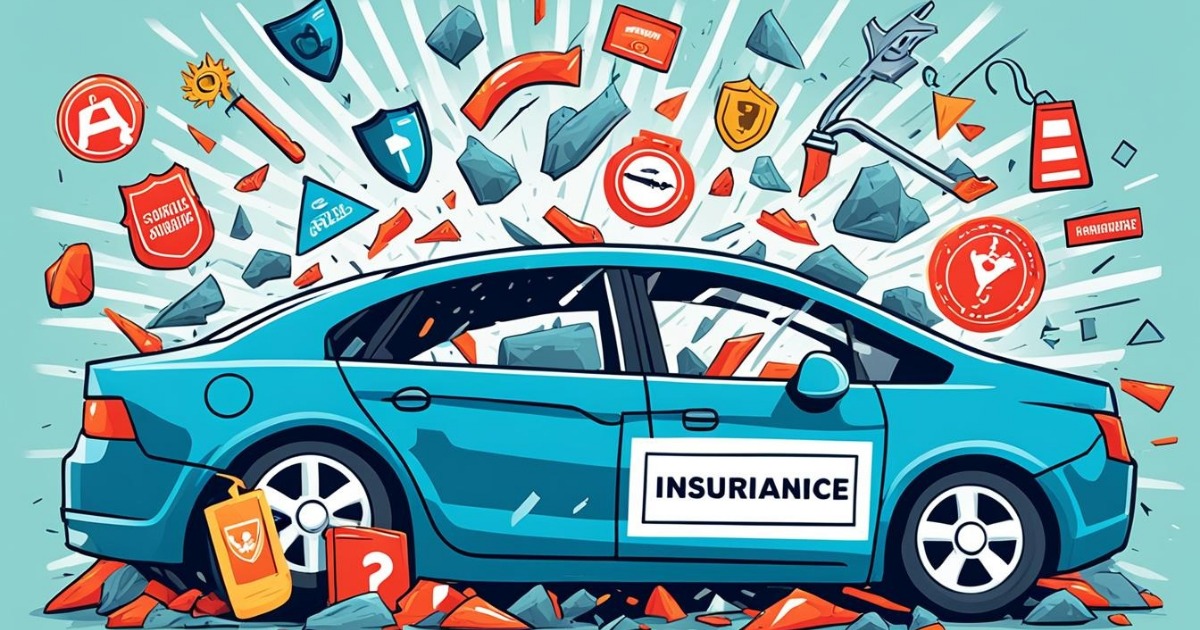Comprehensive Car Insurance Full Coverage Explained
Understanding car insurance can seem tough, but knowing about comprehensive coverage is key to protecting your car and money. This guide will cover the details of comprehensive car insurance. It will look at coverage options, deductibles, and the claims process. This will help you make smart choices about your car insurance.
At the core of a comprehensive car insurance policy is collision coverage. It protects your car if it hits another car or object. This coverage pays for fixing or replacing your car, no matter who was to blame. Liability protection keeps you from paying for injuries or damages you cause to others in an accident.
A comprehensive policy might also have uninsured motorist coverage. This covers you if you crash with someone who doesn’t have insurance. Personal injury protection pays for medical bills and lost wages for you and your passengers, even if you’re not at fault. Property damage coverage makes sure you pay for any damage you cause to another car or property.
Let’s get into the details of deductibles, premiums, and the claims process. Deductibles are what you pay first before your insurance helps out. Premiums are the monthly or yearly costs for your insurance. When you file a claim, your insurance company will help you through it. They make sure your car gets fixed or replaced quickly and correctly.
Knowing how comprehensive coverage works means your car and money are safe, even when unexpected things happen on the road.
Understanding Car Insurance Policies
Car insurance can seem complex, but knowing your policy well is key to protecting your car and wallet. We’ll explore collision coverage and liability protection in this section. These are vital parts of a complete car insurance plan.
Collision Coverage
Collision coverage helps fix your car if you hit another car or something else. It covers repairs up to the policy’s limits. Remember, you’ll pay a deductible first before insurance covers the rest.
Choosing the right deductible balances your insurance costs and your out-of-pocket expenses in case of a claim.
Liability Protection
Liability insurance is crucial if you’re at fault in an accident. It pays for the other party’s damages and injuries, up to your policy limits. Having enough liability coverage can save you from big out-of-pocket costs if someone sues you.
Review your policy’s liability limits often. If they’re too low, consider upping them for better protection.
Knowing how your car insurance works, especially about collision and liability coverage, helps you make smart choices. It ensures you’re ready for the unexpected. This way, you can relax, knowing your car and finances are well-protected.
Comprehensive Car Insurance Full Coverage Explained
Comprehensive car insurance gives drivers a strong shield against many risks. It includes uninsured motorist coverage to protect you if hit by an uninsured driver or someone who leaves the scene. This coverage helps pay for medical bills, lost wages, and other costs from an accident.
Uninsured Motorist Coverage
Personal injury protection (PIP) is another key part of comprehensive coverage. It covers medical costs and lost wages for you and your passengers, no matter who caused the accident. PIP is very useful if you’re hit by a driver with little or no insurance.
Personal Injury Protection
Property damage coverage covers the cost of fixing or replacing your car if it gets damaged in an accident, theft, or natural disaster. This coverage helps you get your car back fast, saving you money.
Property Damage Coverage
It’s important to know what your comprehensive car insurance policy covers, like deductibles and premiums. The claims process and exclusions also matter. Many insurers add extra benefits, like roadside help and rental car coverage, for more protection.

